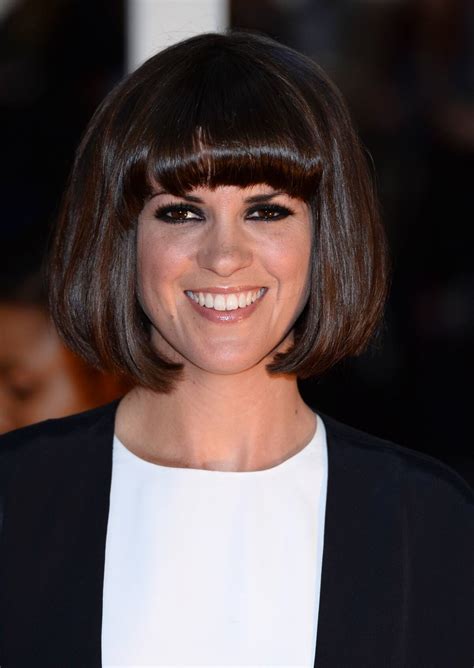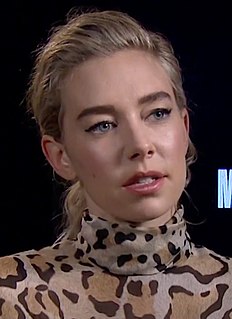A Quote by Dawn O'Porter
When I wrote 'Goose' I gave my assistant my password, she locked me out of Twitter, and I wrote the book in five weeks. Sometimes I fantasise about how wonderful life would be if I went offline, but I can't - because I really need affection and adoration from strangers!
Related Quotes
I was reading Emily Dickinson and Edwin Arlington Robinson, but these weren't the poets that influenced me. I think Gwendolyn Brooks influenced me because she wrote about Chicago, and she wrote about poor people. And she influenced me in my life by giving me a blurb. I would see her in action, and she listened to every single person. She didn't say, "Oh, I'm tired. I gotta go." She was there, and present, with every single person. She's one of the great teachers.
I read a lot by female psychoanalyst Lou Andreas-Salomé, who wrote prominent biographies of Nietzsche, Rilke, and Freud because she studied with all of them. She had this unbelievable insight into contemporary psychoanalysis. What is so interesting is that she wrote her life, and she knew that her life would be about these men, and it didn't stop her from leading an incredibly successful academic career. But her strange self-awareness that she was going to bookmark these men's lives is really interesting to me.
... the man took my passport and asked me the purpose of my visit, I wrote in my daybook, 'To mourn,' and then, 'To try to live,' he gave me a look and asked if I would consider that business or pleasure, I wrote, 'Neither.' 'For how long do you plan to mourn and try to live?' I wrote, 'For the rest of my life.
My mother had died when I wrote my first book. I was twenty-seven, so it was right at the beginning of my writing life. I don't know if she had lived, if I would have done it, certainly not quite like I did. But, you can't rethink it. You wrote what you wrote, it meant something to other people, and that's your good.
Well, Thanksgiving we'll all gather at my house for dinner and we usually do Christmas at Beau's house. My mom is still feisty and kicking. She's 92. I saw her last night and she published a book at 90. It's a wonderful book called "You Caught Me Kissing" and it's basically love-poems that she wrote for my dad. It's more than that, it's a wonderful book.
I took to writing as my medicine to help me stay afloat in acting career journey. I wrote about me breaking hearts, and my heart being broken. I wrote about my views whether they were liberal or conservative. I wrote about everything. I wrote about my life. When I did not have paper coming in as green backs, I'd use random pieces of paper for stories. It was like, I got no money, but I have paper to write. So I wrote.
Sometimes I'll say, "I wrote that book," and the person will look at you as if you're really strange. One time that happened to my daughter on a plane. She was sitting next to a girl who was reading one of my books and my daughter said, "My mother wrote that book." And the girl started to quiz my daughter, asking her all sorts of questions, like what are the names of Judy's children and where did she grow up. My daughter thought it was so funny.
I wrote poetry in a secretive way, I think, a secret from myself, I mean. I wrote it because it gave me great pleasure to do so and because it relieved the ever-building pressure of the demanding world around me. It's always served me as a way of appraising, and controlling overwhelming experiences. But this need, and desire, was always in conflict with my need to "survive."
However, every word she [Richelle Mead] wrote about Lissa in the book I highlighted and analyzed and interpreted until I felt like I’d completely absorbed her [Lissa]. So Richelle gave me insights through the pages of the book. I cried when I found out that she told the producers that I was her dream Lissa. It meant the world to me.
I did The 'Acid Test' at the Royal Court, by Anya Reiss, who's the most wonderful, amazing female writer. She was only 19 when she wrote it. She wrote it about three girls in a flat on a Friday night, and that was magic because it was so rare to have three girls in your age group in a play. It just doesn't happen.
A woman journalist in England asked me why Americans usually wrote about their childhood and a past that happened only in imagination, why they never wrote about the present. This bothered me until I realized why - that a novelist wants to know how it comes out, that he can't be omnipotent writing a book about the present, particularly this one.
Before I wrote The Power of Now, I had a vision that I had already written the book and that it was affecting the world. I had a sense there was already a book somehow in existence. I drew a circle on a piece of paper and it said "book." Then I wrote something about the effect the book had on the world, how it influenced my life and other people's lives, and how it came to be translated into many languages affecting hundreds of thousands of people.
The techniques are all means of dealing with one simple idea: She wrote it. (That is, the "wrong" person--in this case, female--has created the "right" value--i.e., art.)
Denial of Agency: She didn't write it.
Pollution of Agency: She shouldn't have written it.
Double Standard of Content: Yes, but look what she wrote about.
False Categorizing: She is not really she [an artist] and it is not really it [serious, of the right genre, aesthetically sound, important, etc.] so how could "she" have written "it"?
Or simply: Neither "she" nor "it" exists (simple exclusion).






































